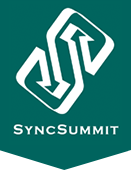By Ryan Fuhrman, TomatoShark
With DIY publishing platforms like SoundCloud, Youtube, and Bandcamp open to every musician on earth, your first job as a musician in 2015 is to get people to notice you.
If you manage to get some followers, bring some ears on your music, and acheive a little traction, don’t waste the opportunity. You need to be ready to monetize right away. That means having your music ready to sell on BandCamp, and working with a digital distributor to get your tracks up for streaming, on itunes, and on Amazon.
You also need to be ready for the more professional buyers: the people who are looking to sync license your tracks.
If you have music published online, and you’re working on getting noticed, I have a question for you. Is your music ready to be licensed for sync? If I wanted to license your track for a youtube commercial, and I needed to get it done today, where would I start?
We have a problem
Here’s a likely scenario: one of your tracks gains some traction on the internet. People hear it on Hypemachine; it gets shared around amongst friends; your SoundCloud followers jump from 17 to 17,000, and one pair of ears that your track hits belongs to a music supervisor. She loves your song and would like to put it in a project she’s working on.
Right away you have a problem: how does she get in touch with you? A potential buyer may have your info on SoundCloud or be able to find you on twitter/instagram/facebook, but how often do you check your SoundCloud messages? How many professionals would handle business over twitter? Unless you have a label and publisher’s contact info clearly listed in your profiles, you may lose your buyer before negotiations have even begun, simply because there’s no professional way for them to get in touch.
Next problem: is your track legal? Even if your buyer CAN contact you they won’t know if you’re legally capable of granting a sync license. Maybe you’re using uncleared samples, maybe you’re fighting with your bandmates (and other Sound Recording co-owners), maybe you have already licensed the tune exclusively to someone else. Music supervisors don’t have time to waste, so unless you broadcast to your audience that, “yes, this track is clear for licensing,” they have no idea what kind of a legal nightmare might be waiting underneath the music, and may very well move on rather than investigate for themselves.
The third problem is budgeting. If you’re a relatively unknown musician, the expectation is going to be that your prices will start out low, but nobody knows that. Maybe you feel strongly that your tracks have the same sync value as Led Zeppelin. Once again, buyers shopping for sync licensing do not want to waste their time contacting you only to discover that your tracks are out of their budget.
Be prepared to sync license your music
Your sync licensing buyers are operating on tight deadlines and strict budgets. If you want to break into the industry, you need to remove every obstacle from their paths. You need to be able to capture the sale at the moment your buyer becomes interested. You need to be prepared to license your music BEFORE the opportunity comes along. Here are some basics you can take care of ahead of time.
Sort out your ownership issues in advance. Create a basic contract with your band mates if you need to. Be able to say “I own 200% of these tracks, 100% master and 100% composition,” so you can keep it simple for your buyers.
Be approachable. Have an email that gets checked regularly, put it in all your social profiles, and embed it in your track meta data. This doesn’t have to be your personal email, but keep in mind that sometimes sync sales come years after you release material. Three years from now, are you still going to be checking that band email you made for the one-off collaboration album you did with your friend? Using your personal email ensures that you’ll get the message even if it comes 5 years later. Some people even put their phone numbers in their track metadata; consider it. This is the simplest way you can blow a sale, and the easiest to fix.
Make budgeting easy. Price your tracks out in advance. Don’t waste your buyer’s time thinking about this AFTER you’ve been approached, or you’ll see the job fly off to another, more organized musician. Before you even publish your music online, start asking around, and develop a sense of what you would charge and what offers you would take for a licensing opportunity. If you get approached for a sync license, or you get asked what you would charge, be ready to respond that minute.
There’s an easy solution
A surefire way to be prepared for sync is to create a licensing store on TomatoShark. With a TomatoShark store, your catalog will be in one place, priced in advance, and ready for automated sync licensing. By automating your licensing, you remove all communication, legal, and budgeting hurdles, so anyone who is thinking of licensing your tracks can do so as soon as they are ready to pay. You can link to your storefront from SoundCloud, your personal website, and more with our big red “license my music” button, and never miss out on a sync licensing sale again.



